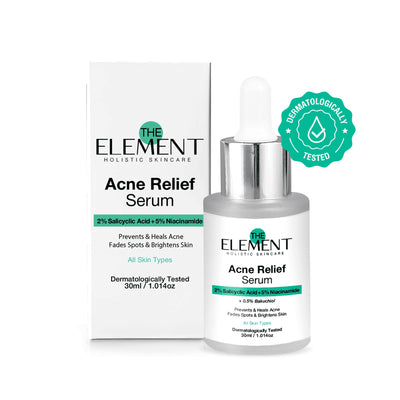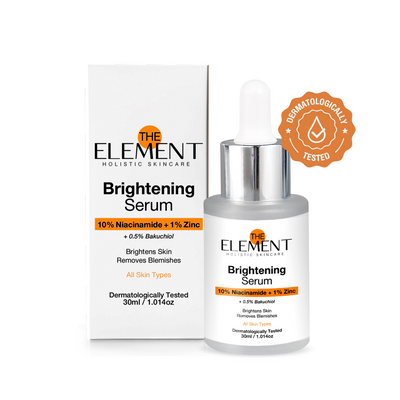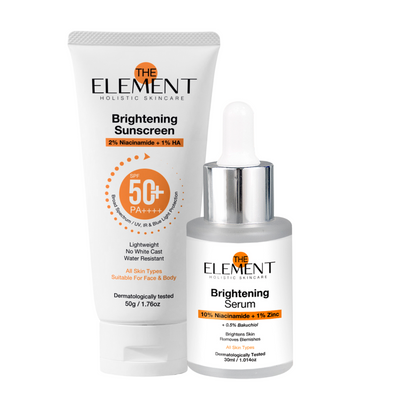Chemical Face Peel Acne: The Ultimate Guide to Clearer Skin

Acne is a persistent skin concern that affects millions worldwide, often leaving behind stubborn scars and uneven texture. If you’re searching for an effective solution, you’ve likely come across the term chemical face peel acne. Chemical face peels for acne have gained popularity for their ability to treat active breakouts, fade scars, and rejuvenate the skin. In this comprehensive guide, we’ll explore everything you need to know about chemical peels for acne treatment, including how they work, their benefits, challenges, expert recommendations, and when to consider peels versus salicylic acid serums.
What Are Chemical Peels for Acne?
Chemical peels are dermatological treatments that use acids to exfoliate the top layers of the skin. By removing dead skin cells and promoting cell turnover, chemical peels can address a variety of skin issues, including acne, hyperpigmentation, and scarring. The most common acids used in chemical peels for acne include salicylic acid, glycolic acid, and lactic acid.
According to Dr. Shilpi Khetarpal, a board-certified dermatologist at the Cleveland Clinic, “Chemical peels are a versatile tool in acne management, helping to unclog pores, reduce inflammation, and improve skin texture.”
When to Use Salicylic Acid Serums vs. Chemical Peels
Before considering a chemical peel, many dermatologists recommend starting with topical treatments like salicylic acid serums. These serums are effective for mild to moderate acne, blackheads, and oily skin. Salicylic acid, a beta hydroxy acid (BHA), penetrates deep into pores, dissolving excess oil and dead skin cells.
When can salicylic acid serums work?
Salicylic acid serums are ideal if you have:
- Mild to moderate acne
- Occasional breakouts
- Blackheads and whiteheads
- Oily or combination skin
If your acne is persistent, moderate to severe, or you have post-acne marks and scars that don’t improve with serums, it may be time to consider a chemical face peel for acne.
When to Use Chemical Peels for Acne
Chemical peels for acne are recommended when:
- Over-the-counter treatments (like salicylic acid serums) are not effective
- You have moderate to severe acne
- You’re dealing with acne scars, pigmentation, or uneven skin texture
- You want faster, more noticeable results
Dr. Mona Gohara, Associate Clinical Professor of Dermatology at Yale, explains, “Chemical peels are especially beneficial for patients who have plateaued with topical treatments and are seeking improvement in both active acne and residual scarring.”
How Do Chemical Face Peels for Acne Work?
Chemical face peels for acne work by applying a controlled solution to the skin, which causes the outermost layers to exfoliate and eventually peel off. This process reveals fresher, smoother skin underneath and helps to:
- Unclog pores and reduce blackheads and whiteheads
- Minimize active breakouts
- Fade post-acne marks and hyperpigmentation
- Stimulate collagen production for improved skin texture
Types of Chemical Peels for Acne Treatment
There are several types of chemical peels, each suited for different acne concerns and skin types:
Superficial Peels:
These use mild acids like alpha hydroxy acids (AHAs) or beta hydroxy acids (BHAs), such as glycolic acid and salicylic acid. They are ideal for mild acne and maintenance.
Medium Peels:
Trichloroacetic acid (TCA) peels penetrate deeper, targeting moderate acne, pigmentation, and early scarring.
Deep Peels:
Phenol peels are the strongest and are reserved for severe scarring and deep wrinkles, but they require significant downtime and are less commonly used for acne.
Best Chemical Peel for Acne and Scars
When it comes to choosing the best chemical peel for acne and scars, salicylic acid acne peel is often recommended for oily and acne-prone skin. Salicylic acid is a BHA that penetrates deep into pores, dissolving excess oil and dead skin cells.
Other effective options include glycolic acid peels for brightening and lactic acid peels for sensitive skin.
Do Face Peels Get Rid of Acne Scars?
One of the most common questions is: Do face peels get rid of acne scars? The answer is yes—chemical peels can significantly improve the appearance of acne scars, especially superficial and post-inflammatory hyperpigmentation. However, deeper scars may require multiple sessions or combination treatments like microneedling or laser therapy.
Chemical Peels for Acne at Home vs. Professional Treatments
At-home chemical peels for acne are available in lower concentrations and can be a convenient option for maintenance. Popular at-home products include salicylic acid and glycolic acid peels. However, professional treatments performed by dermatologists or licensed estheticians use higher concentrations for more dramatic results.
Key differences:
- At-home peels: Lower strength, minimal downtime, suitable for mild acne and maintenance.
- Professional peels: Higher strength, tailored to your skin type, can address moderate to severe acne and scarring.
Does Chemical Peel Work for Acne?
Does chemical peel work for acne? Numerous studies and clinical experience confirm that chemical peels are effective for treating mild to moderate acne, reducing breakouts, and improving skin texture. They are often used as part of a comprehensive acne management plan.
Skin Peel for Acne Marks and Scars
If you’re dealing with lingering acne marks, a skin peel for acne marks can help fade discoloration and smooth uneven texture. Peeling solutions like glycolic acid, lactic acid, and TCA are commonly used for this purpose.
Skin Peels for Acne Prone Skin: Are They Safe?
Skin peels for acne prone skin are generally safe when performed correctly. It’s important to choose the right type and strength of peel for your skin type and to follow post-peel care instructions to avoid irritation or complications.
Does Peeling Solution Remove Acne Scars?
Does peeling solution remove acne scars? Peeling solutions can significantly reduce the appearance of superficial scars and pigmentation. For deeper scars, a combination of treatments may be necessary.
Anti Acne Peels: Benefits and Challenges
Benefits:
- Unclog pores and reduce breakouts
- Fade acne marks and scars
- Improve skin texture and tone
- Boost confidence
Challenges:
- Risk of irritation, redness, or sensitivity
- Not suitable for all skin types (e.g., very sensitive or inflamed skin)
- Multiple sessions may be needed for optimal results
Chemical Peels for Acne Scars Price (INR)
The chemical peels for acne scars price varies depending on the type of peel, provider, and location. Here’s a breakdown in Indian Rupees (INR):
- At-home peels: ₹1,500–₹8,000 per product (approx. $20–$100)
- Professional superficial peels: ₹8,000–₹25,000 per session (approx. $100–$300)
- Medium/deep peels: ₹25,000–₹85,000+ per session (approx. $300–$1,000+)
Note: Prices can vary based on city, clinic reputation, and the expertise of the dermatologist. Always consult a certified professional for an accurate quote.
The Future of Chemical Peels in Skincare
With advancements in skincare technology, chemical peels are becoming safer, more customizable, and accessible. New formulations target specific acne concerns while minimizing downtime and side effects. Combining peels with other treatments, such as LED therapy or microneedling, can further enhance results.
Expert Insights
Dr. Michelle Henry, a board-certified dermatologist, emphasizes, “Chemical peels remain a cornerstone in acne management, especially for patients seeking both treatment and prevention of acne scars. Always consult a professional to ensure the best outcome for your skin type.”
Conclusion
Chemical face peels for acne offer a powerful solution for those struggling with breakouts and lingering scars. If you have mild acne, start with a salicylic acid serum. If your acne is persistent or you have scars that don’t respond to serums, consider a chemical peel for more dramatic results. Whether you opt for an at-home peel or a professional treatment, understanding your options and consulting with a skincare expert is key to achieving clear, radiant skin. Ready to take the next step? Book a consultation with a board-certified dermatologist to find the best chemical peel for your acne and scars.
Frequently Asked Questions (FAQ)
Q: What are chemical peels for acne?
A: Chemical peels for acne are treatments that use acids to exfoliate the skin, unclog pores, and reduce breakouts.
Q: Does chemical peel work for acne?
A: Yes, chemical peels are effective for treating mild to moderate acne and improving skin texture.
Q: Do face peels get rid of acne scars?
A: Chemical peels can fade superficial acne scars and pigmentation, but deeper scars may require additional treatments.
Q: What is the best chemical peel for acne and scars?
A: Salicylic acid peels are highly effective for acne-prone skin, while glycolic and TCA peels are good for scars and pigmentation.
Q: Are chemical peels for acne at home safe?
A: At-home peels are safe when used as directed, but professional guidance is recommended for stronger peels or sensitive skin.
Q: How much do chemical peels for acne scars cost in India?
A: Prices range from ₹1,500 for at-home products to ₹85,000+ for professional deep peels.
Q: Does peeling solution remove acne scars?
A: Peeling solutions can reduce the appearance of superficial scars and marks, but may not fully remove deep scars.
Q: When should I use a chemical peel instead of a salicylic acid serum?
A: If your acne or scars do not improve with regular use of salicylic acid serums, or if you want faster, more noticeable results, consider a chemical peel.
References:



